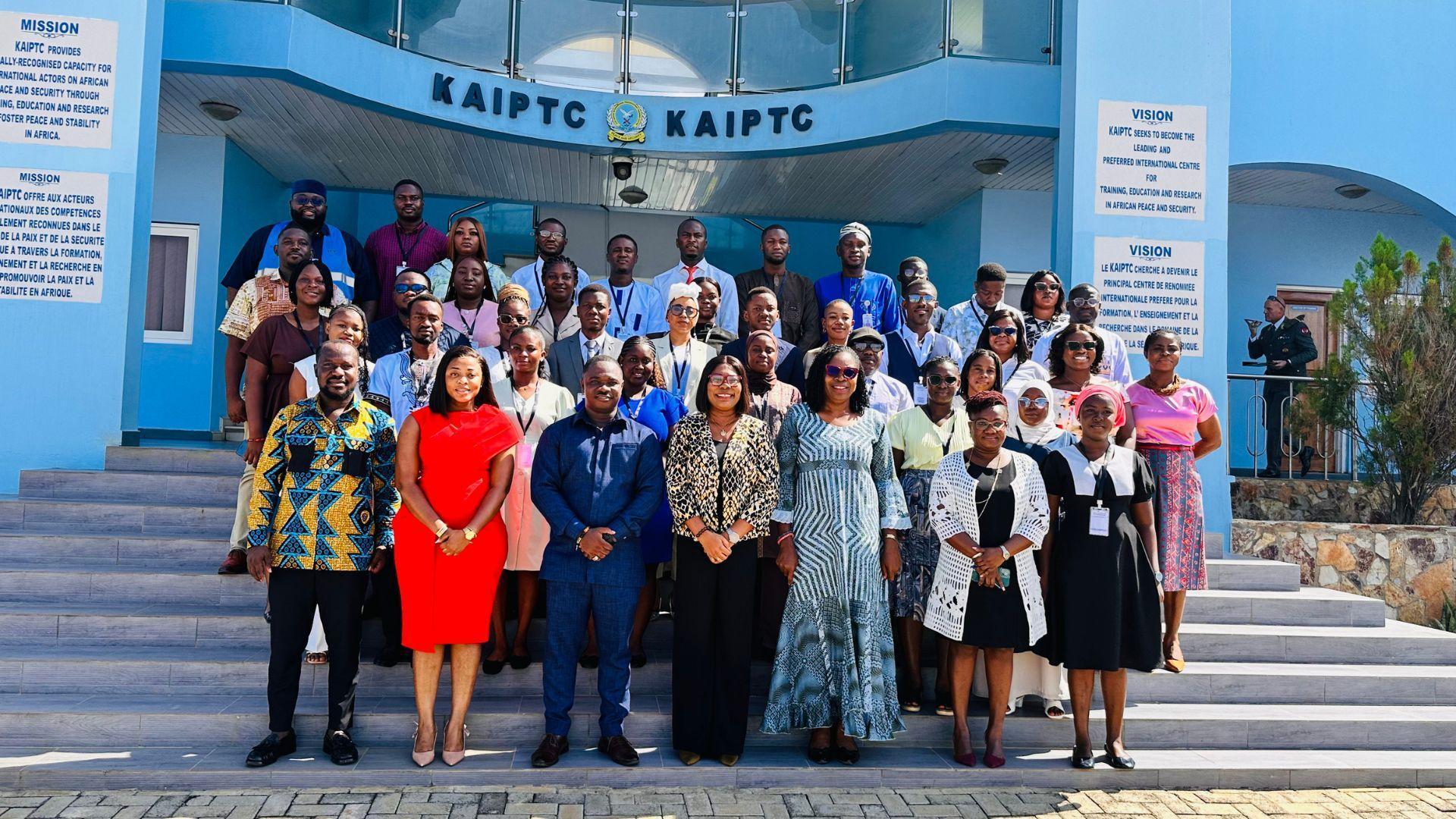Africa-Press – Ghana. The Kofi Annan International Peacekeeping Training Centre (KAIPTC) has launched a pioneering training course on Youth in Leadership and Peacebuilding, aimed at equipping young Africans with the skills to drive sustainable peace and development across the continent.
The initiative, supported by the Swedish International Development Agency (SIDA), seeks to challenge negative stereotypes of youth in conflict zones and empower them as key agents of change.
Africa, with over 75 per cent of its population under the age of 30, is the most youthful continent in the world.
While young people possess the energy, creativity, and perspectives to drive development, they continue to face barriers such as limited access to education, unemployment, economic hardships, and systemic exclusion from leadership.
These factors not only hinder their contributions but also expose youth to vulnerability, often making them active agents in conflict situations including electoral violence and cybercrime.
Recognising this dual reality, KAIPTC, through Women, Youth, Peace and Security Institute (WYPSI), initiated the five-day specialised training to harness the positive potential of the continent’s youth.
The programme targets youth leaders and activist involved in governance, peacebuilding and community development initiatives, youth-led and youth-focused civil society organizations, members of youth-focused NGOs and grassroots movements working on conflict resolution, human rights and advocacy.
Participants will engage in interactive sessions, conflict resolution simulations, and leadership exercises designed to strengthen their ability to mediate disputes and advocate for inclusive governance
Air Commodore David Anetey Akrong, Commandant of KAIPTC, in a speech read on his behalf by Mrs. Sylvia Abra Nutsukpui, Director of Policy Planning, Monitoring and Evaluation, and Acting Director of WYPSI, highlighted the urgency of nurturing young leaders in a world grappling with division and conflict.
She highlighted the gathering as an opportunity to inspire and equip future leaders who will promote peace, resilience, and unity within their communities and beyond.
Mrs Nutsukpui noted that the training was developed following extensive stakeholder consultations in Kenya, Uganda, Nigeria, Senegal, and Ghana, ensuring that the curriculum addresses real-world challenges.
These engagements, followed by a validation symposium and a Learning Design and Development workshop, helped shape the course content to directly address the real-world challenges faced by youth leaders and influencers.
“This course is expected to solve problems and your feedback as the first cohort will be invaluable in refining this programme for future leaders,” she said.
She underscored the importance of equipping young leaders with the tools to champion peace, resilience, and social cohesion in their communities and beyond.
The WYPSI Director acknowledged that although the participants were young, many of them were already assuming leadership roles in their respective organisations.
Their participation, he said, symbolized hope in a world increasingly challenged by conflict and division.
“You are the change-makers of today,” she noted, adding that their ability to influence peers, engage in constructive dialogue, and spark action would be essential in driving long-term peace.
She further encouraged participants to take full advantage of the sessions, stressing the importance of collaboration, reflection, and mutual learning.
The Commandant also expressed gratitude to the SIDA for their financial and strategic support in making the training possible, describing the partnership as a demonstration of a shared commitment to empowering youth to make meaningful contributions to peace and development across the continent.
Dr. Fiifi Adu-Afful, a consultant on the course, in an interview with the Ghana News Agency, emphasized the need to move beyond the perception of young people as mere perpetrators of violence.
He said, “oftentimes, we think young people are spoilers, used for all kinds of nefarious activities. But the United Nations Security Council Resolution 2250 paved the way for us to understand the important role youth play in peacebuilding and fashion out ways to engage them.”
Resolution 2250, adopted in 2015, recognizes the critical role of youth in conflict prevention and resolution, urging greater inclusion in decision-making processes.
Dr. Adu-Afful therefore stressed that empowering young leaders was essential for fostering long-term stability in Africa.
Quoting former UN Secretary-General Kofi Annan, the he reminded participants: “A peaceful world is a prosperous world” and urged them to seize the opportunity to become ambassadors of peace in their respective countries.
For More News And Analysis About Ghana Follow Africa-Press







